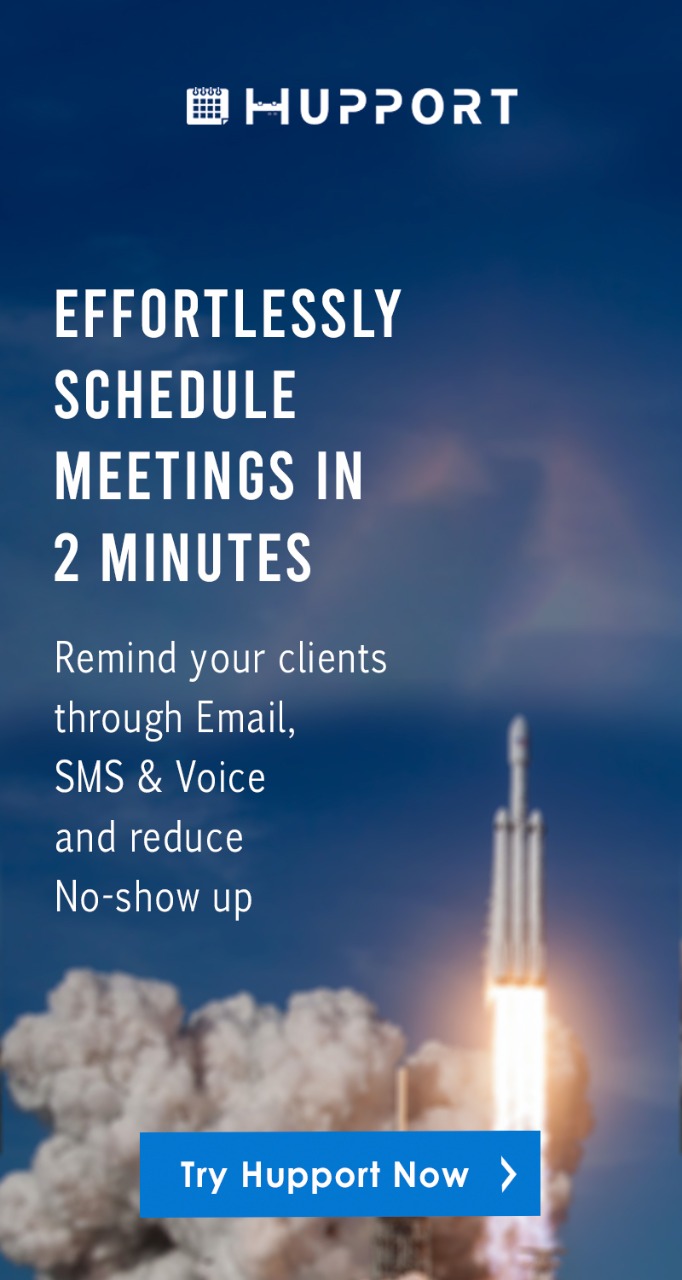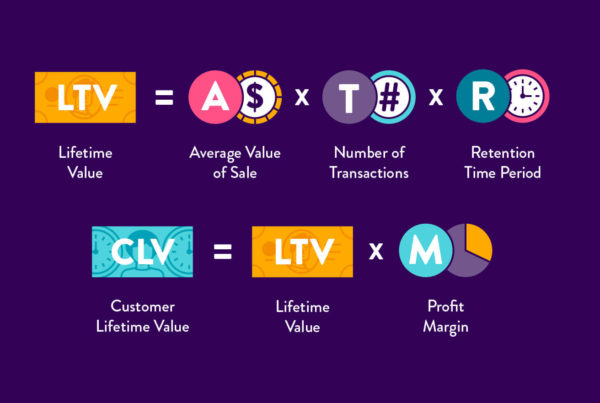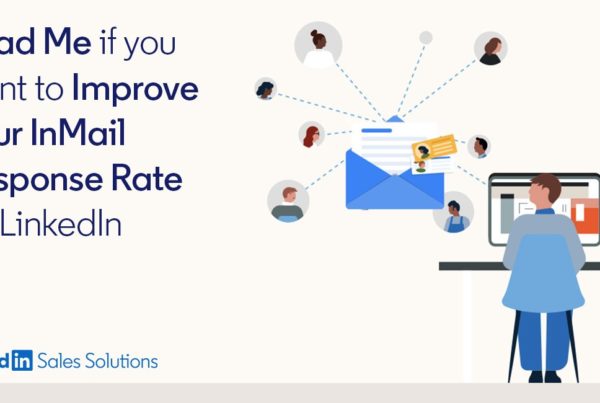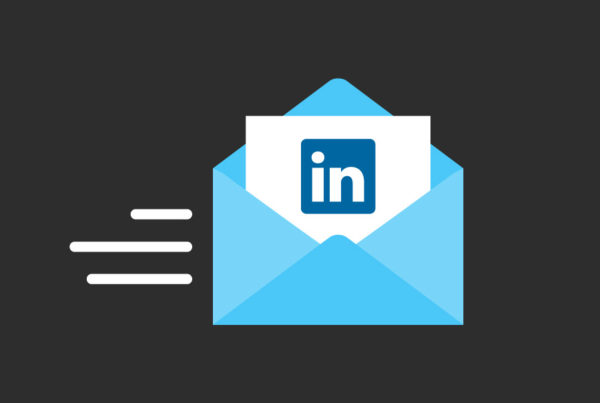30 Alternatives to “looking forward to hearing from you” Email Sentences to make your Email Interesting :
Looking forward to hearing from you or “I look forward to hearing from you” is a popular sign-off line used by most people.
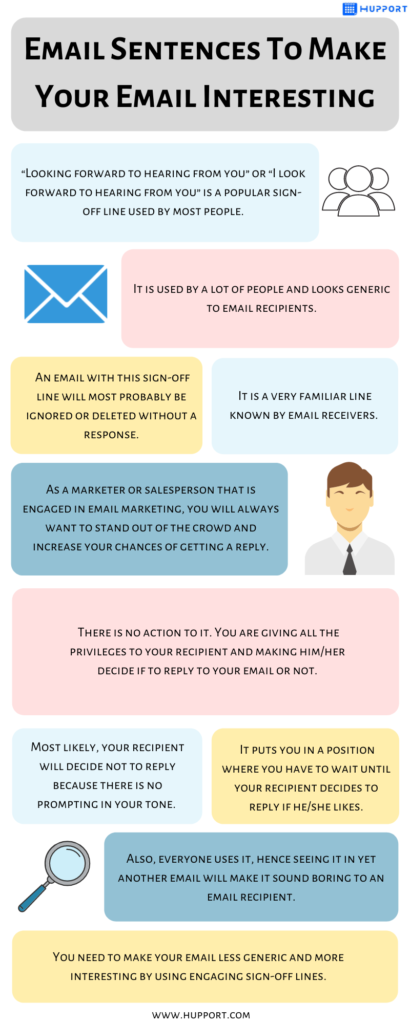
It is used by a lot of people and looks generic to email recipients. An email with this sign-off line will most probably be ignored or deleted without a response. As a marketer or salesperson that is engaged in email marketing, you will always want to stand out of the crowd and increase your chances of getting a reply.
It is a very familiar line known by email receivers. There is no action to it. You are giving all the privileges to your recipient and making him/her decide if to reply to your email or not.Most likely, your recipient will decide not to reply because there is no prompting in your tone. It puts you in a position where you have to wait until your recipient decides to reply if he/she likes.
Also, everyone uses it, hence seeing it in yet another email will make it sound boring to an email recipient. In order to stand out of the crowd and make your recipient take quick action, you need to use actionable sign-off lines that tell your recipient what you want him/her to do.
You need to make your email less generic and more interesting by using engaging sign-off lines. We are going to look at some great alternatives to “Looking forward to hearing from you” that you can use in your email to make your email more interesting and get more replies.
“Let me know if you will be available to meet up by next week Thursday?”
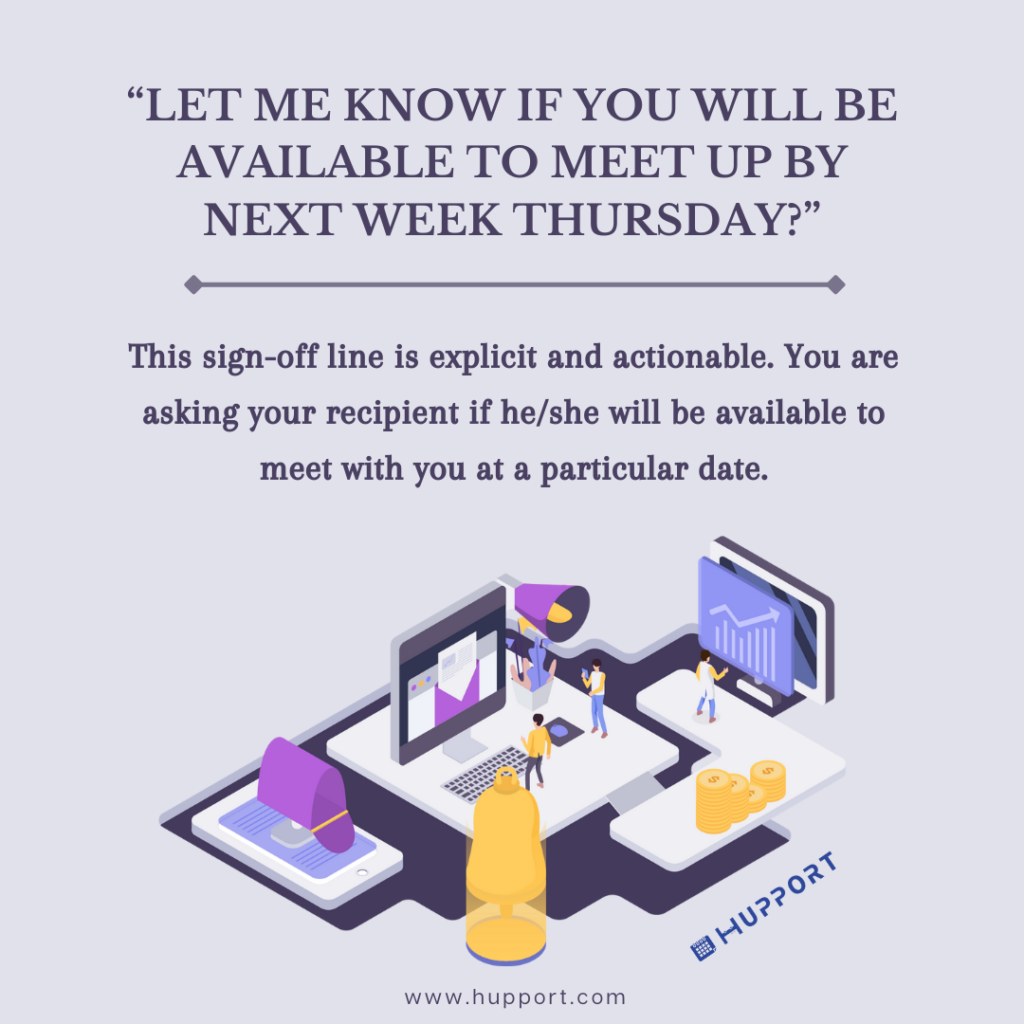
“Let me know if you will be available to meet up by next week Thursday?”
This sign-off line is explicit and actionable. You are asking your recipient if he/she will be available to meet with you at a particular date.
You are not giving your recipient all the privilege to decide your faith. You are upfront with what you want but doing that in a way that doesn’t sound authoritative or pushy.
“Please, don’t forget to send your feedback to me by Monday next week?”
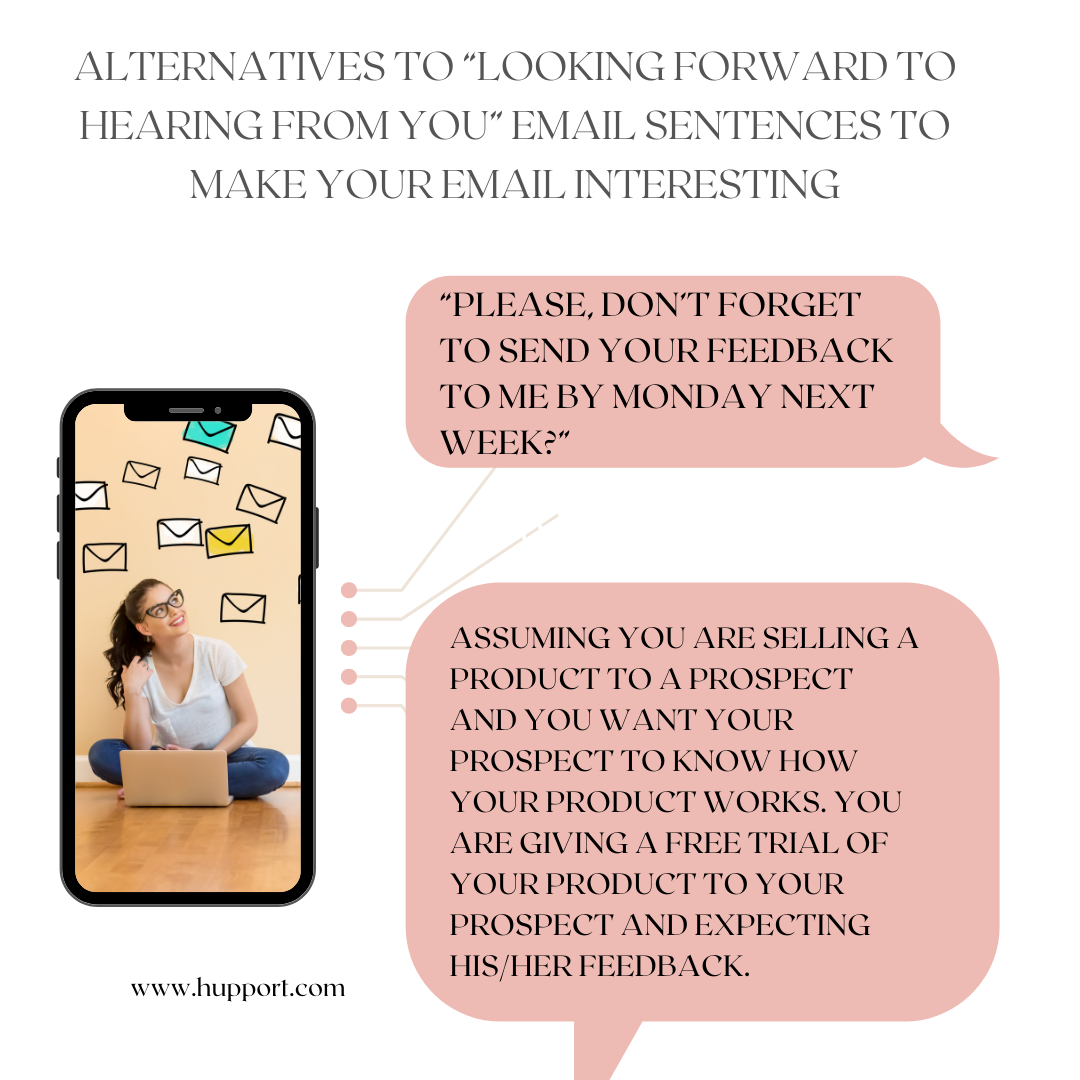
Assuming you are selling a product to a prospect and you want your prospect to know how your product works. You are giving a free trial of your product to your prospect and expecting his/her feedback.
You don’t have to wait till whenever your prospect deems it fit before getting feedback. Be specific, provide a specific date and let your prospect know exactly when you are expecting the feedback.
“I’d appreciate a quick response from you”
Using this alternative sign-off line, you are making your recipient know that you want a quick reply to your email though you are not giving a specific date.
This sign-off line does not sound commanding in tone, it simply notifies your recipient that you want a quick response.
“Keep me promptly informed of any updates”
Are you working on a project with a colleague and you sent an email in order to know how the project is moving? This sign-off line informs your colleague that you will like to get the latest information on the project and it should be quick.
“I await your immediate response”
This might sound a bit similar to “Looking forward to hearing from you” but it has more action to it and it is more time conscious. You are letting your recipient know that his/her response should be immediate.
“If there are any changes, do kindly let me know on time”
This is a great alternative sign-off line you should use in your email if you have a project at hand that you need to complete before a certain date.
Maybe your boss gave you a presentation to make on a particular date and there are some amendments that need to be done, using this sign-off line will let your boss know that time is of the essence to you.
“Remember to keep in touch ASAP”
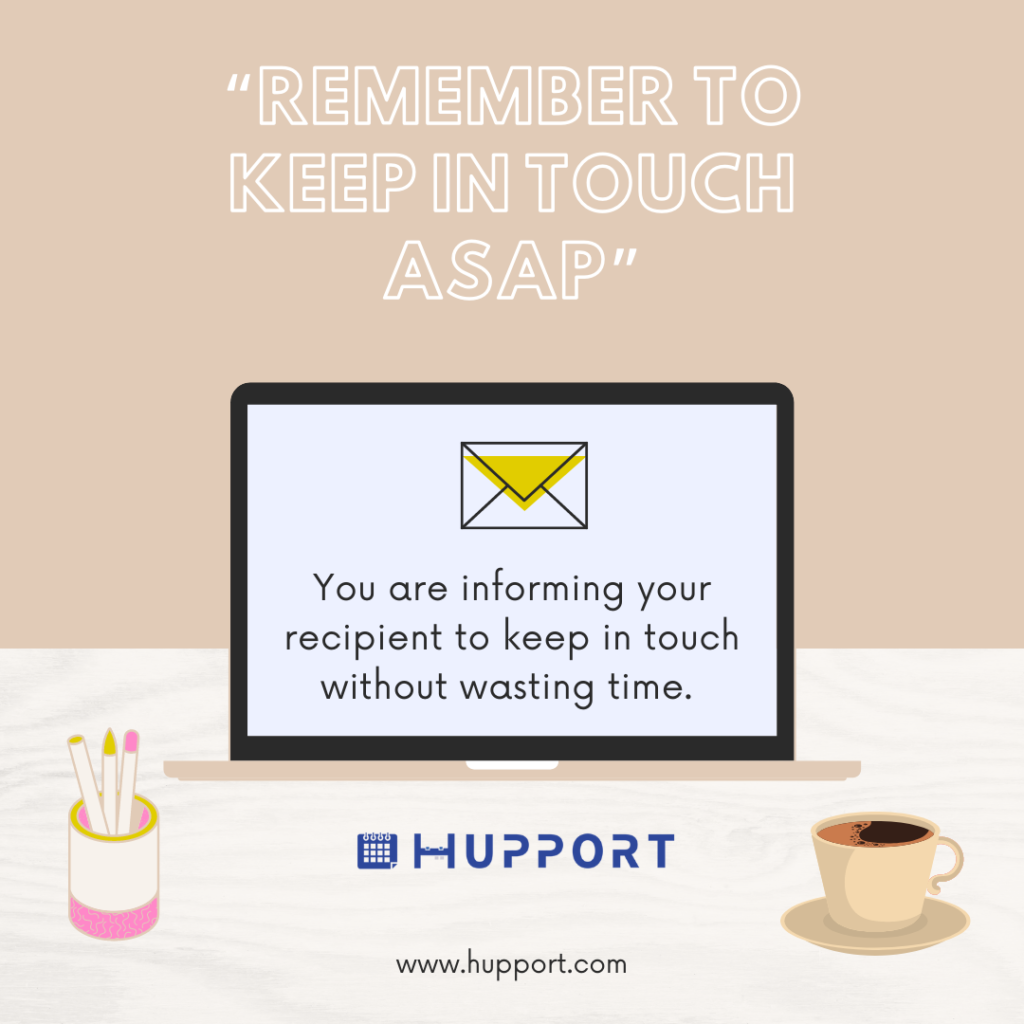
“Remember to keep in touch ASAP”
You are informing your recipient to keep in touch without wasting time. This may sound a bit commanding but it actually it’s not. You are only telling your recipient that time is of the essence.
“I will like us to conclude on this if you will be available on [time and date]”
Do you have an incomplete discussion with your recipient, yet you don’t have the quick time to go on with the talk, you can utilize this line in your email to inform the individual that you will proceed with the discussion with him/her at a later time and date.
“I will appreciate your thoughts on this”
Here, you are being explicit about what you need from your beneficiary by requesting that your beneficiary offer his/her idea on a specific point. Your email recipient clearly comprehends what you mean.
“I will like to have 20 minutes meeting with you on [date and time]”
You want to arrange a meeting with your recipient, you should be explicit about the date and time. This sign-off line gives a reasonable comprehension of the meeting’s date and time.
“I expect an update on [specific task]?”
How about you expect an update from a customer or an associate and you examined about something that should be done at a specific time. You are composing a subsequent email to the customer or partner, this sign-off line is perfect to utilize.
“I think we should have a group meeting by [date and time]”
You are a member of a group and you want to have a meeting with the other members of the group. Your email to each member of the group should contain this kind of sign-off line to inform each member of the time and date the meeting should hold.
“Do give me a call by [date and time]. I will be expecting your call.”
Rather than saying “Looking forward to hearing from you”, make the sign-off line more actionable by using a more actionable alternative. Let your recipient know what you want him/her to do and at the specific time and date.
You are not just waiting for your recipient to call you whenever he/she likes, you are stating the time he/she should call you.
“Could we schedule a meeting for [date and time]”
You want to schedule a meeting with a prospect or a client, it is an ideal alternative sign-off line you should use in your email. With this sign-off line, you as asking your prospect if he/she will agree on scheduling a meeting with you at a particular date and time.
You are being explicit, you know what you want and you are not afraid to ask your prospect to consent to you.
“Do let me know on time what you think about this”
You are asking for an opinion or a suggestion but you want a quick response. This sign-off now will do justice to that. It will create a sense of urgency in the mind of your recipient.
If you write “Do let me know what you think about this”, you give your recipient the free will to reply you at any time he/she likes but adding the actionable word “On time” will make your recipient feel the urgency to reply.
“I will update you on [date]”
There is more information you want to pass across to your recipient and you need to let him/her know when you will be sending another email. This alternative sign-off line will clearly help you convey that to your recipient. It clearly states when you will be sending the updated email.
“Let’s discuss more in detail over coffee on [date and time]”
You are unable to say everything you want to say via email. There are more information you need to pass through to your prospect or client. You want a face-to-face meeting with your prospect so you can discuss in detail. Use this sign-off line to pass your message across.
“How is it going with [specific task]?”
You want to get an update of the proceedings of the task you assigned to an employee or a group member, this sign-off line will clearly convey your question to the person.
“What time and date will you be returning to the office?”
An employee or a colleague traveled for vacation and you want to know the time and date he/she will be returning to the office. This line will make your colleague give a precise date and time he or she will be returning.
“Waiting for your prompt reply”
This sign-off line let your recipient know that you are not only waiting for a reply, but the reply should be quick.
“I’m anticipating your response in the next two days”
This is a very specific and actionable sign-off line. You are not giving your recipient much of a choice. This means your recipient only have the next two days to reply to your email.
This sign-off line is used by bosses and managers and executives. It instructs an email recipient of the consequences of not replying at the expected dates.
“Keep me updated of the developments as things advances”
Though you are not being specific of the date and time, this sign-off line instructs you recipient of timeliness. Keeping you informed as things progress means give me an update immediately anything happens, do not waste time in updating me.
“I value your kind and prompt response”
This is a smart strategy, you are being appreciative and also asking your recipient to respond quickly to you. Using this sign-off line will definitely get your recipient into responding to you quickly without wasting time.
You are also letting your recipient know that you value the time he/she is taking to respond to you. Everyone likes to feel appreciated and using this sign-off line will produce your desired result.
“Do you have any questions?”
This is where you ask questions to get your recipient to respond to you. When you ask questions, it increases your chances of getting a reply because people naturally feel obliged to answer when you ask them questions.
Using this sign-off line will definitely increase your chances of getting a response on time.
“Do you have any inquiries?”
You are marketing a product to a prospect for the first time and the prospect doesn’t know much about your product. As a marketer or salesperson, it is expected of you to use this sign-off line in your email to ask the prospect if he/she has any inquiries. Adding this sign-off line will make your prospect feel at ease to make an inquiry if he/she has any.
“What time will you be available?”
You want to know when your recipient will be available and you need answers immediately. Using this sign-off line will pass the message across to your recipient.
“We are waiting for your input so we can move on with the task”
You are letting your recipient know that without their response, the task has been halted. This sign-offline line will prompt your recipient into replying immediately so as not to be the one hindering the progress of the task.
“Your response is urgently needed”
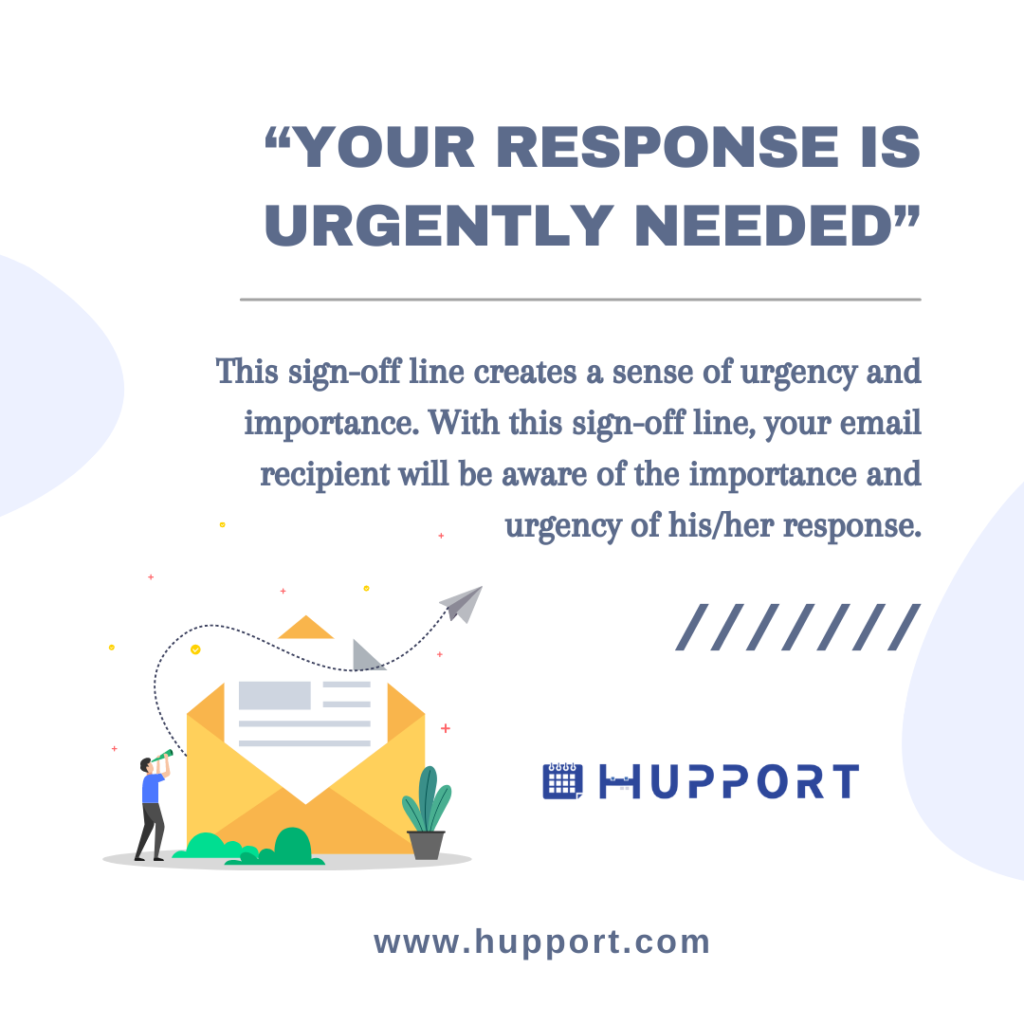
“Your response is urgently needed”
This sign-off line creates a sense of urgency and importance. With this sign-off line, your email recipient will be aware of the importance and urgency of his/her response.
“Let me know if you are interested so I can get started immediately”
You are waiting for your recipient to give you the go-ahead so you can get started with a particular task. Though you didn’t state a particular time, adding “immediately” to your sentence has given your recipient an idea of how urgent it is.
“Please, do not fail to respond before [date]”
Though you are being very polite, you are also conscious of the date you want a response from your recipient. This sign-off line informs your recipient not to delay the reply more than the stated date.
One way to accomplish this is to swap tired, vague phrases like,
“I am looking forward to hearing from you,” with further actionable requests like, “I appreciate your quick response.”
You’ll stand out from the game, improve your possibilities of evoking a response, and guarantee you move more deals along soon.
You may want to utilize alternatives to the traditional email sign-off, “I look forward to hearing from you,” in order to make your email less general and more important, or to reduce the risk of your phrasing being described as passive-aggressive.
Although “I anticipate hearing from you” could be a typical email sign-off expecting a prompt reply, you still utilize some alternatives to convey higher urgency and more specific assistance.
If you’re communicating a note to a friend or family member, or a co-worker you’re waiting to hear back from regarding a project. And while this sign-off communicates knowledge and warm feeling, it isn’t always relevant because it can conduct the wrong information.
I appreciate your quick response
It’s okay to use this alternative when you require an answer as quickly as possible, but you don’t have a time restriction. It gives the receiver a bit stronger of a nudge than “I look forward to hearing from you.”
This is different closing that can sound pushy in the wrong meaning. If your email has a pleasant tone overall, then the sign-off will sound familiar. In a more professional setting, it could seem more like a strict notice: “I expect a reply.”
Awaiting to hear from you
You’re not messing around here. You need to answer yesterday. Keep this closing for when your receiver has delayed and you need to be firm and resolute. But be conscious that this closing carries a serious, even angry, tone. When you use it, you’re making the written equivalent of looking at someone while patting your foot and saying, “Well? I’m expecting.” Use it sparingly. Except, of course, you work in the recovering agency.
Keep me informed
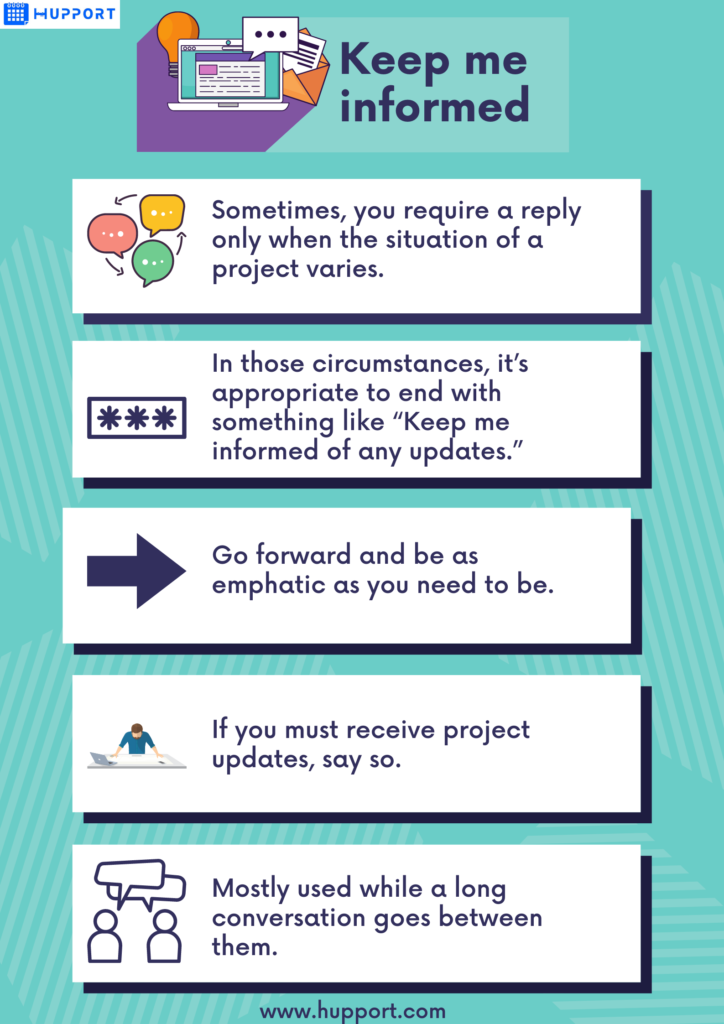
Sometimes, you require a reply only when the situation of a project varies. In those circumstances, it’s appropriate to end with something like “Keep me informed of any updates.” Go forward and be as emphatic as you need to be. If you must receive project updates, say so. Mostly used while a long conversation goes between them.
Always happy to hear from you
This one says “Hey, my inbox is always open!” It is so casual friendly, and it works really well, you have a continuous dialog with it. This closing does not require an answer, so use it only when you do embrace a reply but you don’t really need one.
Write soon!
In less regular emails, “Write soon” is an optimistic sign-off that lets the writer know you’d like to listen from them without really requiring action. Use it for fast and friendly communication, such as writing to a dear friend or our relative. Just put it out of your business delivering; it’s far too relaxed.
FAQs
Can we say looking forward to hearing from you in an email?
This is an excellent way to get people to check your email address. They’ll think you are a professional and might trust you more. You can say, “looking forward to hearing from you in an email.” The word “forward” means “toward the future” and can be used as a noun or a verb.
What does looking forward to hearing from you reply mean?
If you receive an email and want to respond but want to wait until a later time, you can reply with “Looking forward to your reply.” This allows you to put off your response if needed. It is polite to say, “I’ll get back to you some time.”
Which is correct, looking forward to hearing from you or looking forward to?
There’s some difference of opinion on this one. The two phrases have different meanings. Looking forward to hearing from you is an idiom. It means in anticipation of something.
I am looking forward to your visit.
Looking forward to is a preposition. It means to look forward to (the arrival of) something. I am looking forward to your visit.
So, when using the idiom, there’s no need to use a preposition. And, when you’re using the preposition, there’s no need to use an expression.
How do you say looking forward to hearing from you professionally?
Taking the time to enunciate words and avoid speaking in absolutes will make you sound more intelligent than saying quickly and using fillers such as “um” and “you know.” It will also help you be understood.
Example: I am pleased to inform you that your application for the Executive Assistant position has been favorably considered. We are now ready to offer you the Executive Assistant position to the CEO. Thank you for your interest, and please accept our best wishes for your success in this new endeavor.

